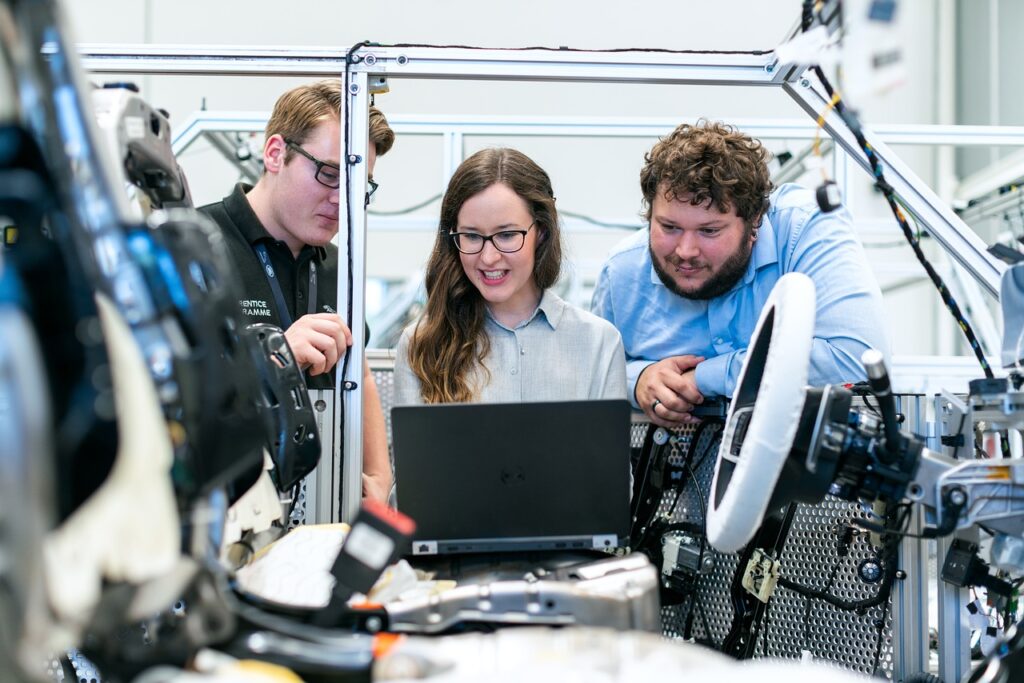Expertise as Infrastructure
In industrial automation, even the best technology falls short without proper planning, design, and implementation. Engineering consultancy and technical support serve as the foundation for reliable, scalable, and efficient automation solutions. These services are often the difference between a smooth project rollout and costly delays, between short-term fixes and long-term resilience.
What Is Engineering Consultancy in Industry?
Engineering consultancy involves the expert analysis, design, and guidance provided during the planning and development stages of technical projects. Consultants bring a systems-level perspective that helps align engineering decisions with business objectives, regulatory requirements, and technical constraints.
Consultancy services often include:
- Feasibility studies and concept development
- System architecture and technology selection
- Design reviews and risk assessments
- Cost-benefit analysis and ROI forecasting
- Compliance and standards advisory
Consultants act as both advisors and collaborators, helping organizations avoid common pitfalls and make informed decisions early in the lifecycle.

The Role of Technical Support
Technical support focuses on the implementation, optimization, and maintenance of engineering systems after they’ve been deployed. In industrial settings, this includes on-site troubleshooting, remote diagnostics, software updates, and system calibration.
Support services help ensure that machines, networks, and control systems continue to operate as designed—especially when changes in production demand or hardware occur. Technical support teams are also key players during commissioning phases, helping to fine-tune automation sequences and resolve unexpected issues.
Impact of Consultancy and Support on Project Success
Effective consultancy and support services contribute directly to system performance, operational efficiency, and business continuity.
Risk Reduction
Early-stage consultancy helps identify technical risks before a project even begins. This can include evaluating legacy infrastructure compatibility, anticipating integration challenges, or addressing regulatory hurdles. By mapping out potential failure points in advance, organizations can take proactive measures to mitigate them.
Cost Control
Consultants can help prevent unnecessary spending by selecting the right technologies for the job—not just the most advanced or expensive ones. Through careful scope definition and requirements gathering, consultancy reduces scope creep and keeps budgets realistic. On the support side, rapid issue resolution avoids extended downtime and reduces the cost of unplanned service calls.
System Reliability and Uptime
Technical support ensures that equipment and software continue to function properly under real-world operating conditions. This includes preventative maintenance schedules, firmware updates, and compatibility management across devices and systems. A reliable support infrastructure reduces unplanned outages and ensures fast recovery when faults occur.
Knowledge Transfer and Training
Consultants and support engineers play a critical role in upskilling client teams. Whether it’s training staff on PLC programming standards or guiding operators through new HMI systems, this knowledge transfer builds internal competency. Over time, the client organization becomes less dependent on external help, gaining confidence in managing their own systems.
Lifecycle Planning
Consultancy doesn’t end after commissioning. Systems need to evolve—whether through technology upgrades, process redesigns, or capacity expansions. Having expert support means future planning is informed by historical performance data, current standards, and realistic feasibility assessments. This approach extends the usable life of assets and helps align technical investments with long-term goals.
Integration with Existing Operations
Industrial environments often involve a mix of legacy equipment and new technology. Consultants assess how these systems can work together—whether that means retrofitting with additional sensors, integrating with a modern SCADA layer, or standardizing control protocols across vendors. This integration ensures that new projects enhance, rather than disrupt, ongoing operations.
Compliance and Documentation
From electrical drawings to control logic documentation, engineering consultancy ensures that all designs meet industry and safety standards. Proper documentation makes future troubleshooting faster and more accurate, and is often required for regulatory audits or insurance purposes. Support teams also ensure that these documents are updated over time as systems evolve.
Real-World Applications
- Automation Upgrades: A consultancy team assesses whether an aging line can be retrofitted with modern controls and sensors instead of being replaced
- Commissioning Support: A technical support engineer tunes PID loops during system startup and resolves communication issues between PLCs and HMIs
- Emergency Response: Remote diagnostics identify a failing encoder in a conveyor system before it halts production
- Network Optimization: A consultant redesigns the industrial Ethernet topology to reduce latency and isolate faults
- Regulatory Guidance: Consultants help food and pharma clients ensure that validation and traceability requirements are built into control systems
These examples illustrate the diverse ways consultancy and support contribute to both strategic direction and operational excellence.
The Future of Consultancy and Support
As systems grow more complex and distributed, the value of specialized expertise will only increase. Remote support, augmented diagnostics, and predictive analytics are already reshaping how engineering services are delivered.
Expect more consultancy work to involve simulation-based design, lifecycle modeling, and data-driven optimization. On the support side, remote monitoring tools, secure VPN access, and cloud-based logs will enable faster, more proactive interventions across geographically dispersed facilities.
Engineering consultancy and technical support are not add-ons—they are essential components of modern industrial projects. They provide the experience, structure, and responsiveness that ensure complex systems work reliably and evolve intelligently. Whether planning a new installation or keeping an existing system running at peak performance, expert guidance and hands-on support are key to long-term success.
